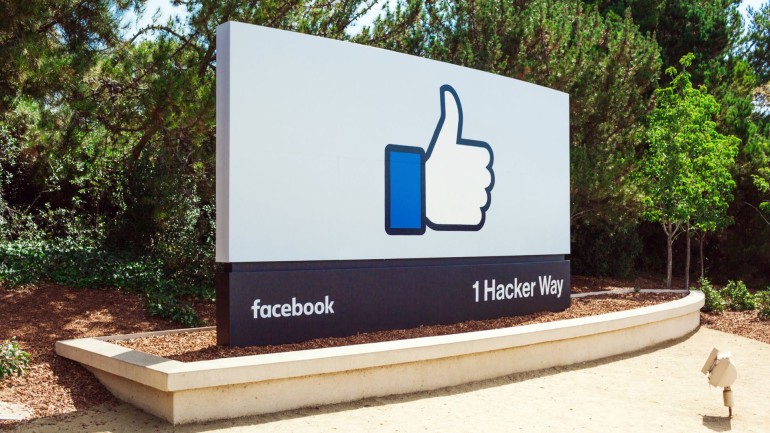Sponsored Listings:
Mainstream media headlines about the launch of Facebook’s cryptocurrency, known as Libra, have so far been dominated by government and regulatory implications.
That’s not surprising given probes into the social media platform around privacy and wider concerns about cryptocurrencies, but, for travel, there are a few interesting elements about Libra.
The early involvement of Booking Holdings, Lyft and Uber will not have gone unnoticed although some technology outlets report that the partnerships are nonbinding and companies can walk away at any time.
That said, payments are already a huge part of travel by virtue of the size of the industry and the huge volumes of transactions processed daily.
The huge volatility in cryptocurrencies, such as Bitcoin, will have scared off many travel industry players so far but perhaps, as suggested by Roberto da Re of travel payments startup Travel Ledger, Facebook can capitalize on this.
He says that on the one hand the Facebook move will make more people take notice of cryptocurrency in general and perhaps give the perception that it can provide a better or more sustainable model.
Da Re sees this as Facebook’s best attempt so far to get into payments but says its adoption is likely come initially in low-value items such gaming and/or in-app purchases.
“This is where people will experiment with it and then depending on the experience and how comfortable they are, they will potentially migrate to bigger purchases. The fact the Booking.com is involved shows how important payments are in travel but I don’t it’s going to be a catalyst, I think we’re going to see usage from the bottom up.”
He also points out that key to the success of something like Libra, and other cryptocurrencies, is the “on-boarding, how traditional Fiat currencies are transferred to digital currency and what the costs might be.
“It’s a key bottleneck. The gatekeepers are the ones that have the most to lose but the easier the on-boarding is, the easier the adoption is. Are the banks going to play ball, are governments going to make it easy? That’s the gate that needs to be opened in order to then facilitate everything else.”
Nadim El Manaway, chief executive of Arise Travel, also sees pushback from governments coming down the road.
He says: “Real regulatory challenge is going to come from governments that are worried about losing the monetary levers (interest rates, money supply etc.) they use to control the performance of their economies. The idea that this power could be in the hands of a consortium of tech giants already sounds scary to many people.”
Oversight and issues
Already, it has been widely reported that Maxine Waters, chairwoman of the House of Financial Services Committee in the U.S., has requested that Libra stop development until hearings to scrutinize it have taken place.
The fact that Libra is a stable coin will help resolve some of the issues. Many travel companies currently work with BitPay to manage the transaction element.
El Manaway agrees that stable coins remove much of the volatility and says he believes there could be “a lot of value and incentive for the industry to adopt crypto for certain payment and business operations.”
Looking at the potential for Libra, he adds: “We believe Libra is targeting the developing world and the 1.7 billion unbanked individuals globally. Today, many of these individuals are excluded from booking travel online because they don’t have a payment method they can use to secure a reservation.
“Libra (or another stable-coin) could be the catalyst that opens up online travel to a huge chunk of the global population and increase the number of reservations made through online channels.”
Seen in that context for travel, it seems a smart move by the likes of booking and Uber who already have investments in developing countries and are eyeing the impact of digital development as millions more come online.
But for the population that already has bank accounts and access to other payment methods, there are fewer advantages to using Libra, says El Manaway.
He also says that while travel companies could avoid some payment processing fees by offering Libra and encourage use of the currency through incentives, it will likely become another payment option in online travel.
Overall, it no longer feels as if cryptocurrency is just hype with an increasing number of travel companies making it a payment option and a number of startups springing up around it in payments, smart contracts and loyalty.
BitPay, which processes cryptocurrency payments for travel companies including Corporate Traveller and Destinia, says that its total travel industry transactions processed increased by 13% when comparing the 12 months from June 1, 2017, to June 1, 2018, with the same period from 2018 to 2019.
It adds that the average value of payments increased by 21%.
IATA declined to comment on Libra but Eric Leopold, director of financial and distribution services transformation, says the organization sees opportunity for cryptocurrency in reducing costs, saving time and in increasing safety of fund transfers.
“In a closed environment, without volatility or speculation on the currency, cryptos fit well into a broader scope of digital transformation of financial processes. Additionally, we see payment becoming increasingly a part of the customers’ experience and it is not a just a back-office process. Therefore, having choices and new alternatives is going to foster innovation and creativity.”
He adds that IATA has implemented IATA coin, it’s own crypto currency for payment between airlines and that it’s also exploring the potential for “digital finance” using shared ledgers and smart contracts.
Source: travelweekly.com










